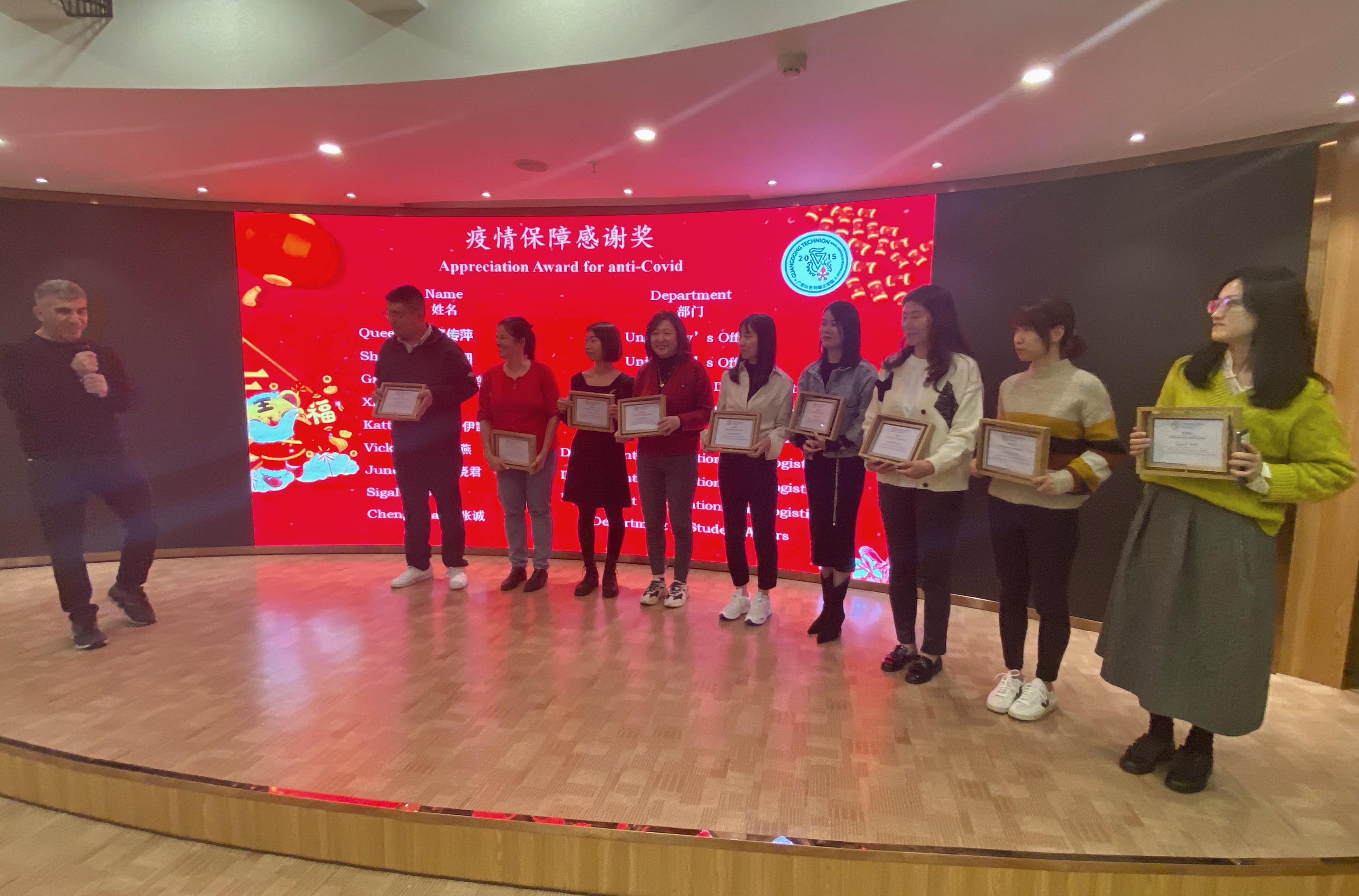PostTime:12/19/2021
This morning, on the occasion of the fifth anniversary of Guangdong Technion – Israel Institute of Technology (GTIIT), Professor Zhang Jie, Academician of Chinese Academy of Sciences (CAS) and physicist, was invited to give a seminar titled “Institutional Incentives: Building a Modern University Administration System” to GTIIT’s administrative staff.
He shared his management experience during his tenure as the President of Shanghai Jiao Tong University (SJTU) with its essence lying in institutional incentives and proposed that universities should shoulder the responsibility of fueling national socioeconomic transformation, innovation, and human civilization progress. He also presented his point of view of GTIIT’s future development.

Prof. Zhang Jie is a prominent scientist for his pioneering contribution in high energy density physics. He was elected Academician of CAS, Member of Germany Academy of Sciences Leopoldina, Fellow of the Third World Academy of Sciences (TWAS), Foreign Member of Royal Academy of Engineering (FREng) and Foreign Associate of American National Academy of Sciences (NAS). He is also a professional in university governance. Under his leadership, SJTU has made remarkable progress on its way in ten years. Nowadays, SJTU has become a world-class university.
Prof. Zhang Jie compared universities to the “engine for innovation” and introduced the theoretical foundation of institutional incentives from renowned universities’ contributions to the development of the US innovation economy in fields such as aerospace, the internet, big data and AI. He noted that university is a complex organization embracing intelligence, diversity and the long term with innovation taking root at the core. The essence of innovation is to inspire the innovative vitality of individuals. Prof. Zhang indicated that modern university governance system should lie in the establishment of a people-oriented institutional incentive system and create a comprehensive, systemic and constant encouragement for faculty, students and staff in the university to stimulate innovation vitality.

Prof. Zhang took the example of SJTU’s future strategic plan to further interpret the implementation of “people-oriented” institutional incentives in the reform of the personnel system. In the Q&A session, he also provided suggestions for GTIIT’s future development. He said that as a Sino-foreign cooperative university, GTIIT is very different from traditional universities in China. “GTIIT is rooted in the excellent tradition and foundation of the Technion - Israel Institute of Technology, and has unique advantages in the reform of talent cultivation.” He suggested that GTIIT should take advantage of China’s booming situation to bring a great impact on social development using the innovation ability of the university and closely integrate its own development with the provincial and even national development.




Q&A session of the Seminar
On the occasion of GTIIT’s fifth anniversary, Prof. Gong Xingao, Academician of CAS and Chancellor of GTIIT brought “a shot in the arm” for all GTers and friends from different social sectors. He said while GTIIT is a young institute learning by trial and error, GTers could rise to challenges and address the issues. “We will boost educational reform and endeavor to build a better future for GTIIT!”

On December 18, a group of staff were honored with the 5-year Service Award at GTIIT’s annual meeting and fifth anniversary ceremony.

Staff Honored with the 5-year Service Award

Staff Honored with Appreciation Award for Anti-Covid
Text/Photos: GTIIT News & Public Affairs
© GUANGDONG TECHNION-ISRAEL INSTITUTE OF TECHNOLOGY | 粤ICP备17036470号
